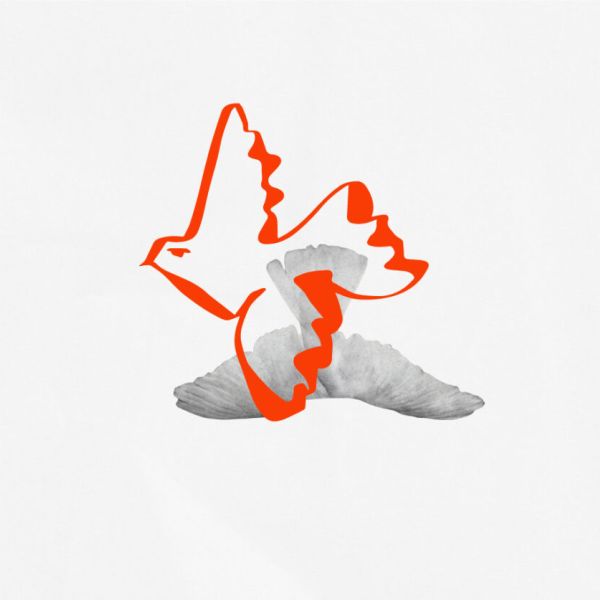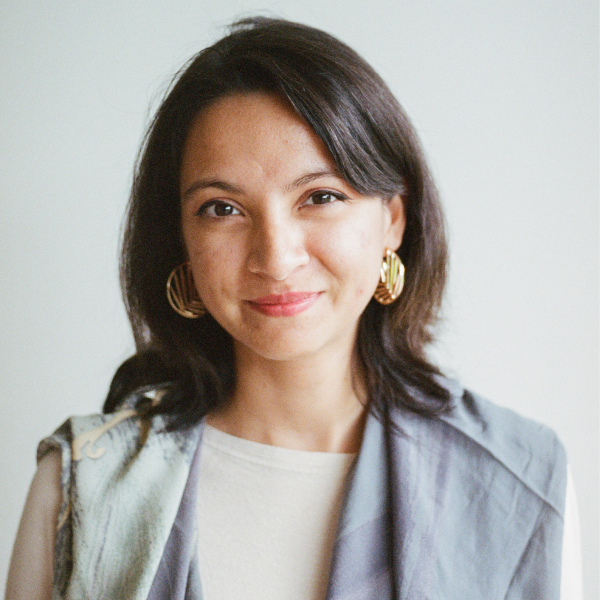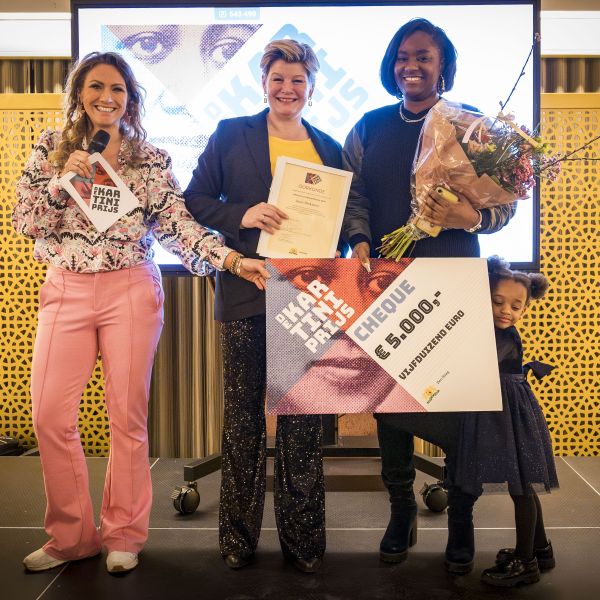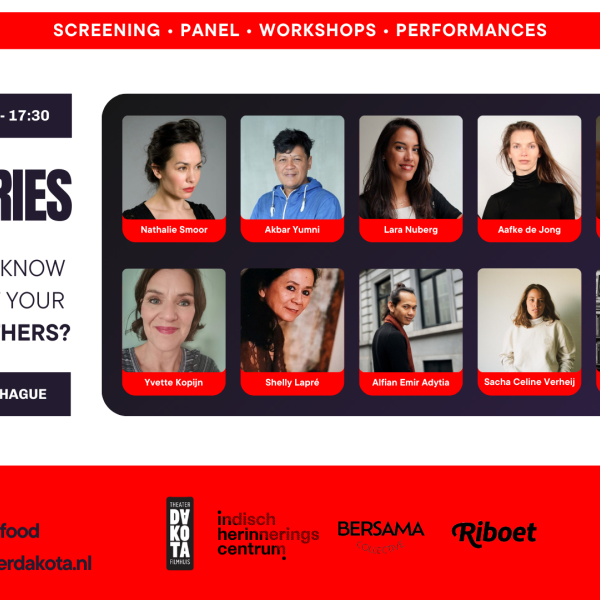Kartini Prize winner Joan Biekman: "Our freedom cannot be taken for granted, we must cherish and create it"
In light of Keti Koti, the end of the Commemorative Year of Slavery, the Kartini Prize and the upcoming first monument for Transatlantic Slavery, we caught up with Joan Biekman. She is a dynamic force within The Hague’s cultural sector and with her organisation Urban Creatives with Brains, she supports creatives of colour.
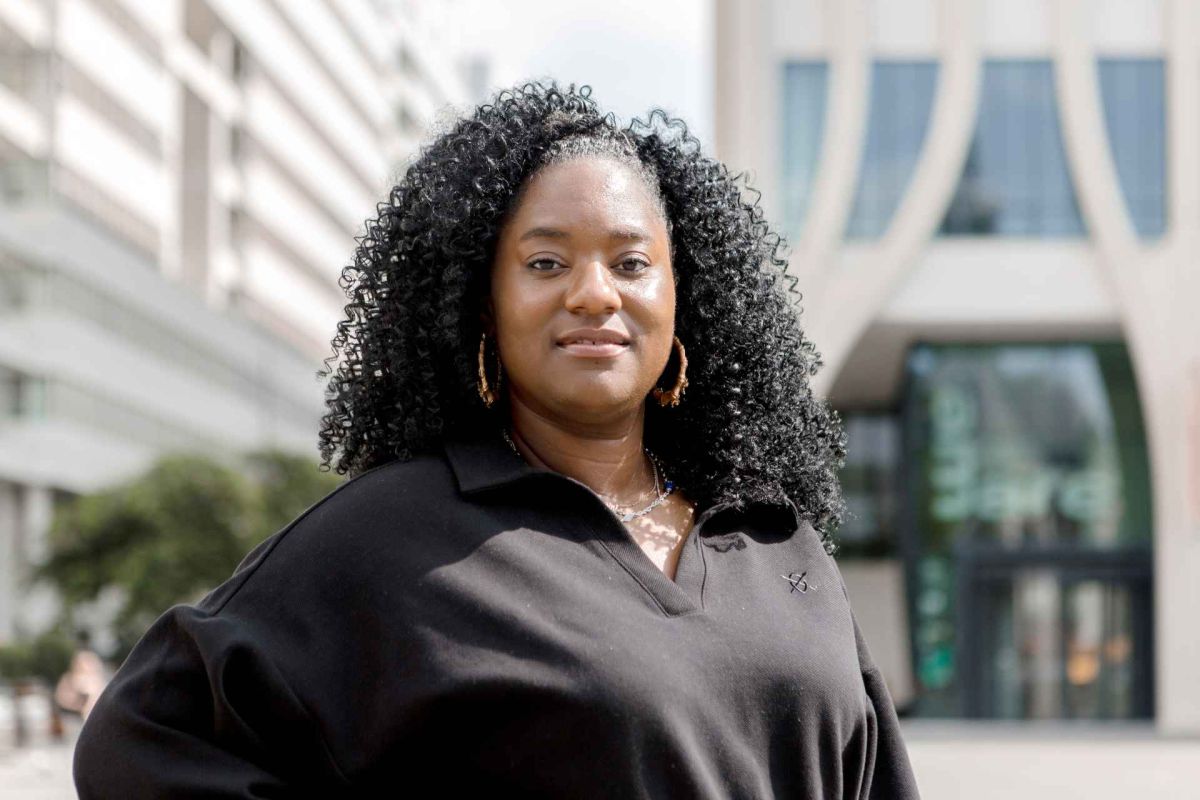
I noticed that many creative makers with a bicultural background were not connected to arts and culture grants. I want to change that.
Text and photography by Sacha Celine Verheij
Born in Schilderswijk and raised in Laak neighbourhood, Joan Biekman grew up in a diverse environment that shaped her view of the world. She started her career as a volunteer at the age of twenty-four and worked her way up within youth participation, with a strong focus on arts and culture. “I studies Communication and Media in Rotterdam with a dream to do something within Black entertainment. My mission was to give art and culture a hip and accessible image, in which urban entertainment and hip-hop also have a full place.
Hip-hop, fashion, trainer culture also fall under art and culture
When Joan started working in the arts and culture sector, she discovered that arts and culture is more than museums, concert halls and opera. It also includes hip-hop, fashion, trainer culture, among others. "From then on, I thought 'OK, if I do something in arts and culture I'm gonna make it look cool'."
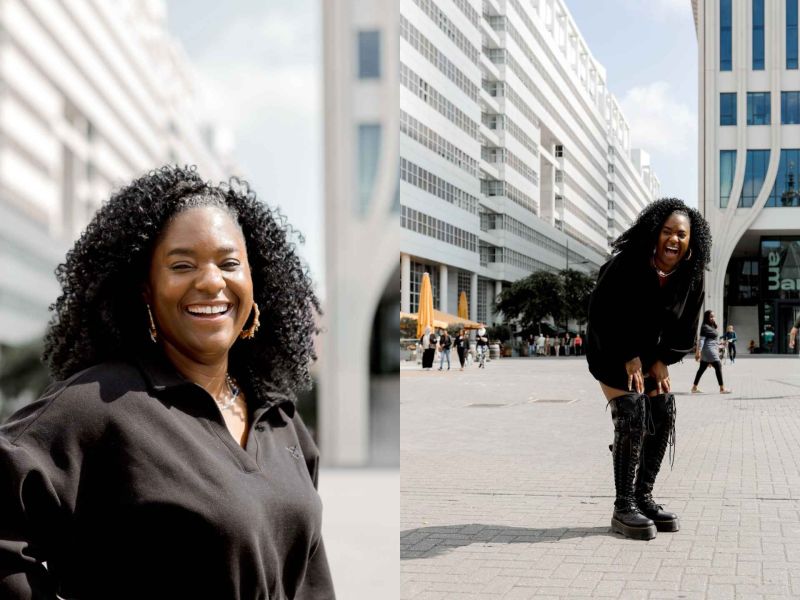
With her organization Urban Creatives with Brains/Urban Chicks with Brains, she advocates for women of color in the creative sector, and specifically the Afrodiaspora in The Hague. "Urban Creatives with Brains came into being during the corona pandemic, when I noticed that many creative makers with a bi-cultural backgrounds were not connected to arts and culture grants. I want to change that." Urban Creatives with Brains provides consultancy and support to grassroots organizations and creative makers, with Joan using her extensive network and knowledge to help, connect and empower others.
The Hague is often overlooked when it comes to Black Lives Matter, the Afrodiaspora is less visible here compared to Amsterdam and Rotterdam.
The need for connection and representation
Joan stresses the importance of community and talent development. She works with various partners and is committed to the Afrodiaspora in The Hague, having supported young talent such as Daniëlle Zawadi (Het Zwarte Schaap), Hermes Barzelini, Jassir Jonis, Nyarko and Murvien Lacroes. "The Hague is often overlooked when it comes to Black Lives Matter, the Afrodiaspora is less visible here compared to Amsterdam and Rotterdam."
This year, 2024, Joan won the Kartini Prize for her commitment to women of color in The Hague. This prize means a lot to her because it is recognition of her hard work and historically her name will always be attached to it.
Joan sees the award as a responsibility and inspiration to contribute positively to the city. She hopes that her daughter will look up to her and believe that she can become anything she wants. Not only for her daughter, but also for other women of color, she is an example and shows them what is possible. “The Daniëlle Zawadis of this world, they are one step closer to their dream and the work they do,” says Joan with a proud smile.
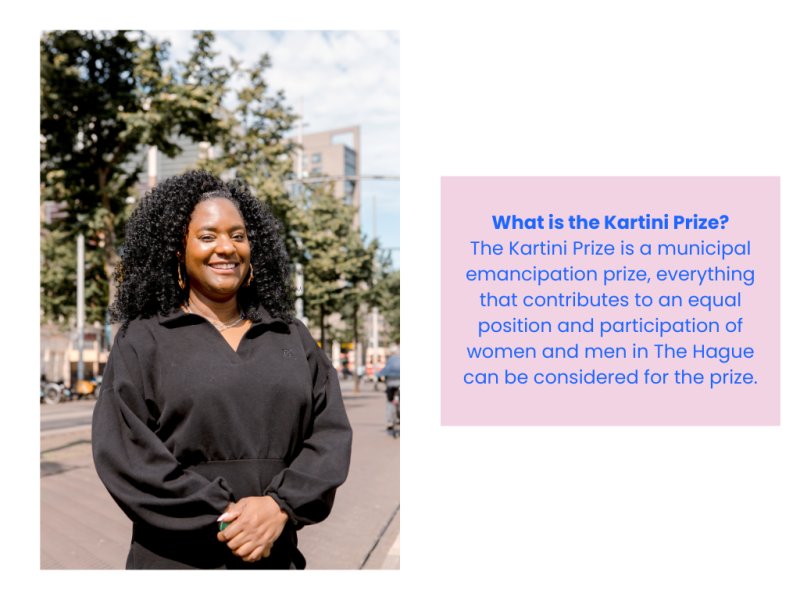
I believe the process of healing and awareness will take generations, but I do my part by creating opportunities for the next generation.
Keti Koti/Kibra Kadena and the Slavery Past
Joan sees the confrontation with the slavery past as an important step towards peace and justice in The Hague. She advocates for awareness and active participation within the community. “The Hague has a lot of pride and splendor when it comes to the past. You see it in the city, for example look at the Mauritshuis and the National Archives. It is important to tell the residents of the city, the rest of the Netherlands and the world, the complete story, that the city was built with the money of colonialism.” Joan believes that education about the slavery past is essential for understanding and healing. Joan’s family history and activism, especially through her grandmother Wilhelmina Pufflijk, better known as Miemie, and aunts Biekman have inspired her to continue this fight.
“I believe that the process of healing and awareness will take generations, but I do my part by creating opportunities for the next generation," says Joan. For example, Joan has organized the celebration of Keti Koti with ‘Free Heri Heri For All’ in collaboration with PAARD, KIP Republic, the Municipality of The Hague and The Black Hague Experience for the past four years. This event invites people to eat the Surinamese dish Heri Heri together to commemorate and celebrate the abolition of the Transatlantic slave trade in the Kingdom of the Netherlands.
*Kibra Kadena is Papiamentu translation of 'chains broken'.
It's important to share what makes us resilient as Black people, we are descended from slaves but that is not where our story begins.
“We celebrate that we are free and honor the greats on whose shoulders we stand. It is important to share what makes us so resilient as Black people, we are descended from slaves but that is not where our story begins. Our freedom is not something that can be taken for granted. Cherish the opportunities that come your way and create them yourself.” Joan believes it is important that everyone celebrates Keti Koti, not just people who look like her. It is part of Dutch history and still affects today’s society.
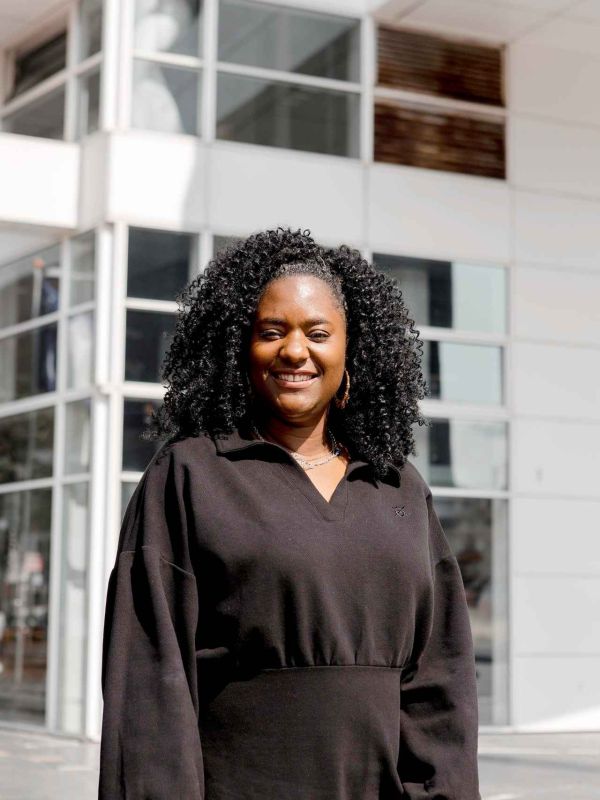
What next?
A memorial for the abolition of Transatlantic Slavery can contribute to more awareness in society. Joan is member of the committee and contributes to the necessary steps. The Hague is preparing for the first monument to commemorate the descendants of enslaved people from Transatlantic Slavery. “For decades, attempts have been made to place a monument in The Hague, where the laws of slavery were established and also abolished.”
As a City of Peace and Justice, this is, to say the least, a bleak history that contrasts strongly with what the city now stands for. “The Black Archives from Amsterdam inspire me: we also must archive what we do. Especially with the arrival of the monument. History is going to be written,” says Joan.
Finally, Joan encourages people and organizations to take a greater interest in the slavery and colonial past, and to actively contribute to a more just The Hague. This can be done through self-examination, participation in annual events such as Keti Koti, and involvement in the development of memorials. Joan Biekman is an inspiring person who works tirelessly towards an inclusive society. Her story is a powerful reminder of the impact one person can have through passion, perseverance, and a deep-rooted sense of justice.
